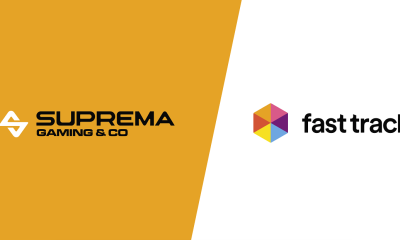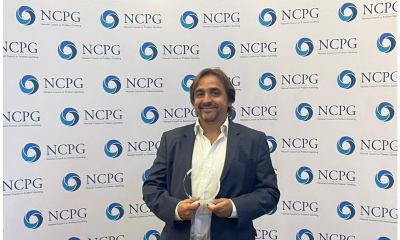Latest News
Discover the Different Gambling Policy Paths Taken by the Nordic Countries

If you are an avid fan of online gambling, then you likely already know the Nordic countries lead the way in legislation. But have you ever paused to consider why these five independent nations – Sweden, Finland, Norway, Denmark and Iceland – all practice different gambling policies? Are their rules as varied as the landscape, or does a particular pattern exist? In this blog post, we will take a closer look into online gambling regulation practices within each of these countries – from how they handle traditional games like lotteries and bingo to regulations surrounding casinos and other forms of wagering, such as sports betting and gaming machines. So, if you are interested in online gambling, find the top safe and reliable casinos at caziwoo casinot to play your favourite games.
The most popular types of gambling in Nordic countries
Gambling is a popular pastime in Nordic countries, and many different types of gambling are popular there. The laws regulating gambling vary from country to country. This can be due to many factors, such as the history of gambling in each country and the population’s religious beliefs.
In Finland, gambling is regulated by the Finnish Gaming Board. The main types of gambling that are legal in Finland are casino games, lotteries, and sports betting. Horse racing is also legal in Finland, but dog racing is not. Slot machines are not legal in Finland, although some exceptions exist for amusement arcades.
In Sweden, gambling is regulated by the Swedish Gambling Authority. The main types of gambling that are legal in Sweden are casino games, lotteries, and sports betting. Slot machines are not legal in Sweden, but bingo is.
In Norway, gambling is regulated by the Norwegian Gaming Board. The main types of gambling that are legal in Norway are casino games and lotteries. Sports betting is not legal in Norway, but horse racing is. Slot machines are illegal in Norway, although some exceptions exist for amusement arcades.
In Denmark, gambling is regulated by the Danish Gambling Authority. The main types of gambling that are legal in Denmark are casino games and lotteries. Sports betting is not legal in Denmark, but horse racing is. Slot machines are not legal in Denmark, although some exceptions exist for amusement arcades.
The different laws regulating gambling in Nordic countries can be attributed to various factors. In Sweden and Finland, for example, the laws may be based on the historical influence of the Church on society. In Norway and Denmark, on the other hand, the laws may be based on secular values instead. Additionally, the population’s religious beliefs may also play a role in determining which types of gambling are legalized. In Sweden and Finland, for example, lotteries may be more popular than casino games because lotteries have a stronger link to charity than casino games do.
How lottery games are regulated in Nordic countries
Lottery games in Nordic countries are regulated by their individual governments. In Sweden, for example, the Lotteries Act of 1994 regulates state-run and private lotteries. This act establishes the Swedish Gaming Board as the regulatory authority for all lotteries in Sweden. The board is responsible for issuing licenses to operators, ensuring compliance with the law, and investigating any possible illegal activities.
In Norway, the Lotteries Act of 1992 sets out the regulatory framework for lotteries in the country. This act establishes the Norwegian Gaming Board as the regulatory authority for all lotteries in Norway. The board is responsible for issuing licenses to operators, ensuring compliance with the law, and investigating any possible illegal activities.
The Gambling Tax Act of 2012 regulates state-run and private lotteries in Denmark. This act establishes the Danish Gambling Authority as the regulatory authority for all lotteries in Denmark. The authority is responsible for issuing licenses to operators, ensuring compliance with the law, and investigating any possible illegal activities.
The Lottery Act of 1999 regulates state-run and private lotteries in Finland. This act establishes the Finnish Gambling Board as the regulatory authority for all lotteries in Finland. The board is responsible for issuing licenses to operators, ensuring compliance with the law, and investigating any possible illegal activities.
How casino gambling is treated in each Nordic country
Casino gambling is legal in all Nordic countries, but there are some differences in how it is treated. In Denmark, for example, casino gambling is a state-owned monopoly. This means that the only place you can gamble in a casino is at one of the two state-owned casinos in the country. In Sweden, on the other hand, there are no restrictions on private casinos, so you can gamble at any casino you want.
In recent years, Norway and Finland have tried to liberalize their casino gambling laws. In Norway, a new law was passed in 2015 that allowed private companies to operate casinos. However, the regulations are quite restrictive, and only a handful of companies have been granted licenses. In Finland, a bill that would have allowed private companies to operate casinos was introduced in Parliament in 2016, but it was ultimately defeated.
Iceland has been more reluctant to liberalize its casino gambling laws. The state owns the only casino in the country, and there are no plans to change that.
How sports betting is handled in the Nordics
The way sports betting is handled in Nordic countries varies from country to country. In Finland, for example, gambling is legal and regulated by the government. The Finnish Gaming Board oversees all gambling activity in the country, and punters must place their bets through one of its licensed operators. Betting on football is particularly popular in Finland, and many firms offer odds on domestic and international matches. In Sweden, by contrast, gambling is illegal apart from a few state-owned casinos. Swedes must bet with offshore operators if they want to bet on sports. This has resulted in a thriving black market for sports betting, with an estimated $2 billion per year. Swedish punters are particularly fond of betting on horse racing, as there are no legal ways to do so within the country.
Conclusion
In general, Nordic countries have fairly permissive gambling laws. Casino gambling is legal in all Nordics, and sports betting is legal or tolerated. However, there are differences in how these activities are regulated from country to country. For example, Denmark has a state-owned monopoly on casino gambling, while Sweden allows private casinos. Norway and Finland are currently trying to liberalize their gaming laws by permitting private companies to offer online casino games. As a small and isolated nation, Iceland has been more reluctant to liberalize its gaming sector, but this may change over time. Despite these differences, Nordic countries remain popular destinations for punters seeking an entertaining online gaming experience!
Compliance Updates
IGSA Welcomes Sharp Vision as Silver Member

The International Gaming Standards Association (IGSA) has welcomed Sharp Vision as a new Silver member. Sharp Vision is a leading provider of regulatory turnkey solutions for gaming authorities.
“We are delighted to be a part of IGSA and we look forward to contributing to the advancement of best practices among regulators in the fast-growing gaming industry,” Damien Raymond, COO of Sharp Vision, said.
“IGSA is very excited to welcome Sharp Vision to our membership. We believe that IGSA Standards can enhance Sharp Vision’s products supporting regulatory authority oversight. We look forward to their participation in IGSA committees,” Mark Pace, President of IGSA, said.
Latest News
BigCash Goes Global with Launch in Brazil

BigCash, India’s leading online skill-based real money gaming company, has set its sights on global expansion and aims to offer an unparalleled gaming experience to users worldwide. The global skill-based gaming market is estimated to grow annually at a CAGR of 13.50% and will be valued at USD 106.78 billion, by 2032. Building on its success in India, BigCash is poised to introduce its entertaining games to global audiences, uniquely blending local flavors with its hallmark innovative gameplay.
BigCash started its journey in 2017 and has quickly become players’ preferred choice, by strategically focusing on launching new games and features regularly and due to its superfast and user-friendly interface. Being a multi-gaming app, it offers a wide range of games tailored for all age groups. With popular Indian card games, like poker, rummy, and call break with regional variations; casual games like ludo, ice blaster, fruit chop, along with fantasy cricket, the platform resonates deeply with the players of Bharat.
Continuing on the mission to take Indian technology global and to reach a wider global gaming audience, BigCash, after months of an in-depth market study, had set its views on expanding its global presence with in-house developed and tailored gaming technology and experience. BigCash presently operates in Brazil, besides India.
One of the key reasons behind BigCash’s entry into the Latin American market is the region’s immense potential for growth in the gaming sector. Brazil, in particular, has emerged as a hotspot for gaming companies due to its large population, favorable demographics, and a growing middle class with disposable income.
BigCash’s global expansion plans include multiple launches in Latin America, Asia, and Africa over the next 12 months. BigCash plans to offer local and international flavors, customized specifically for each country, with a focus on Responsible Gaming and other trust measures, to ensure a deeper bonding with the players.
Ankur Singh, CEO of BigCash, said: “Going global has been part of our strategic planning always; with our launch in Brazil, we have just taken the first step. We are aspiring to be present in 8 countries in the next 12 months. The competitive landscape in Latin America’s gaming industry presents both opportunities and challenges. BigCash is a perfect fit for the Latin American gaming landscape due to our stronghold on tech, which allows product customizations, easy-to-play online games, a supersafe and fast experience; we are already gaining a lot of organic traction.”
Latest News
Michigan Lottery Transitions to 1-800-GAMBLER for Responsible Gaming Support

The Michigan Lottery announced that it will transition to the National Problem Gambling Helpline, 1-800-GAMBLER for responsible gaming support. This aligns the agency with the Michigan Gaming Control Board and other online gaming platforms operating in Michigan in promoting 1-800-GAMBLER. The 1-800-GAMBLER helpline will replace the Michigan Problem Gambling Helpline currently in circulation (1-800-270-7117), although the previous number will remain in operation.
“The Lottery is committed to providing Michiganders with easy access to resources that support responsible gaming. By transitioning to 1-800-GAMBLER, we are able to ensure that Michigan residents can reach specially trained staff who can provide confidential professional support, local referrals, and resources to those who may have a gambling problem,” said Lottery Commissioner Suzanna Shkreli.
Operated by the National Council on Problem Gambling (NCPG), 1-800-GAMBLER is the world’s largest problem gambling helpline network by call volume, population served, and geographic area covered. The helpline connects people and families impacted by problem gambling with professional support, local referrals, and resources.
Calls made to 1-800-GAMBLER from Michigan will be routed to the Michigan Department of Health and Human Services. The helpline can also be reached by texting 800GAM or chatting online at 1800gamblerchat.org. Trained contact center staff are available 24/7, 365 days a year to provide support, guidance, and relevant information to anyone seeking help related to problem gambling. Additionally, players or their family members may connect to support resources such as live chat, text, and the helpline number by selecting the links in the footer of the Lottery’s website.
The Michigan Lottery was the first lottery in the US to achieve the Internet Responsible Gambling Compliance Assessment Program certification through NCPG in October 2015. The NCPG evaluated the Lottery’s compliance with Internet Responsible Gaming (IRG) standards developed based on best practices from jurisdictions around the world. IRG standards are the highest standards for online responsible gaming in the nation.
-

 Latest News3 days ago
Latest News3 days agoFast Track Secures Landmark Deal with Suprema Group – Setting a New Standard in the Brazilian iGaming Market
-

 Gambling in the USA5 days ago
Gambling in the USA5 days agoBetBlocker Recognised for Outstanding Contribution to the Prevention of Gambling Harm at NCPG Awards 2024
-

 Latest News3 days ago
Latest News3 days agoLight & Wonder Expands Presence in Oregon with Additional Placements of KASCADA Dual Screen Multi-Games
-

 Industry News4 days ago
Industry News4 days agoPenn Entertainment to Lay Off About 100 Employees
-

 Latest News3 days ago
Latest News3 days agoRakin’ Bacon Sahara® Launches Exclusively in New Jersey at Hard Rock Hotel & Casino Atlantic City and online at Hard Rock Bet
-

 partnerships3 days ago
partnerships3 days agoGGPoker & Triton Poker Offer High-Roller And Super-High-Roller Events At 2024 WSOP Paradise
-

 Latest News3 days ago
Latest News3 days agobet365 Announces Official Launch in Pennsylvania
-

 Daily Fantasy Sports5 days ago
Daily Fantasy Sports5 days agoDraftKings Becomes Official Partner of the WNBA






